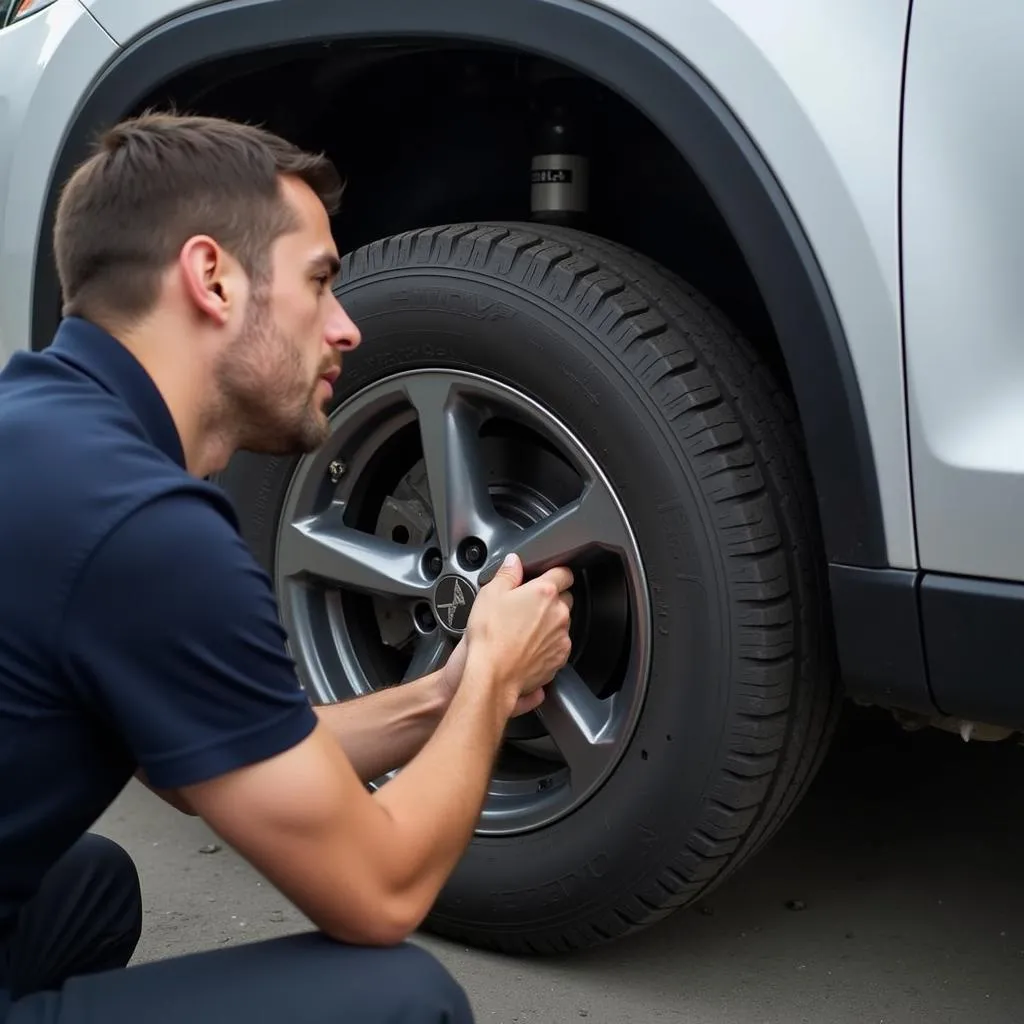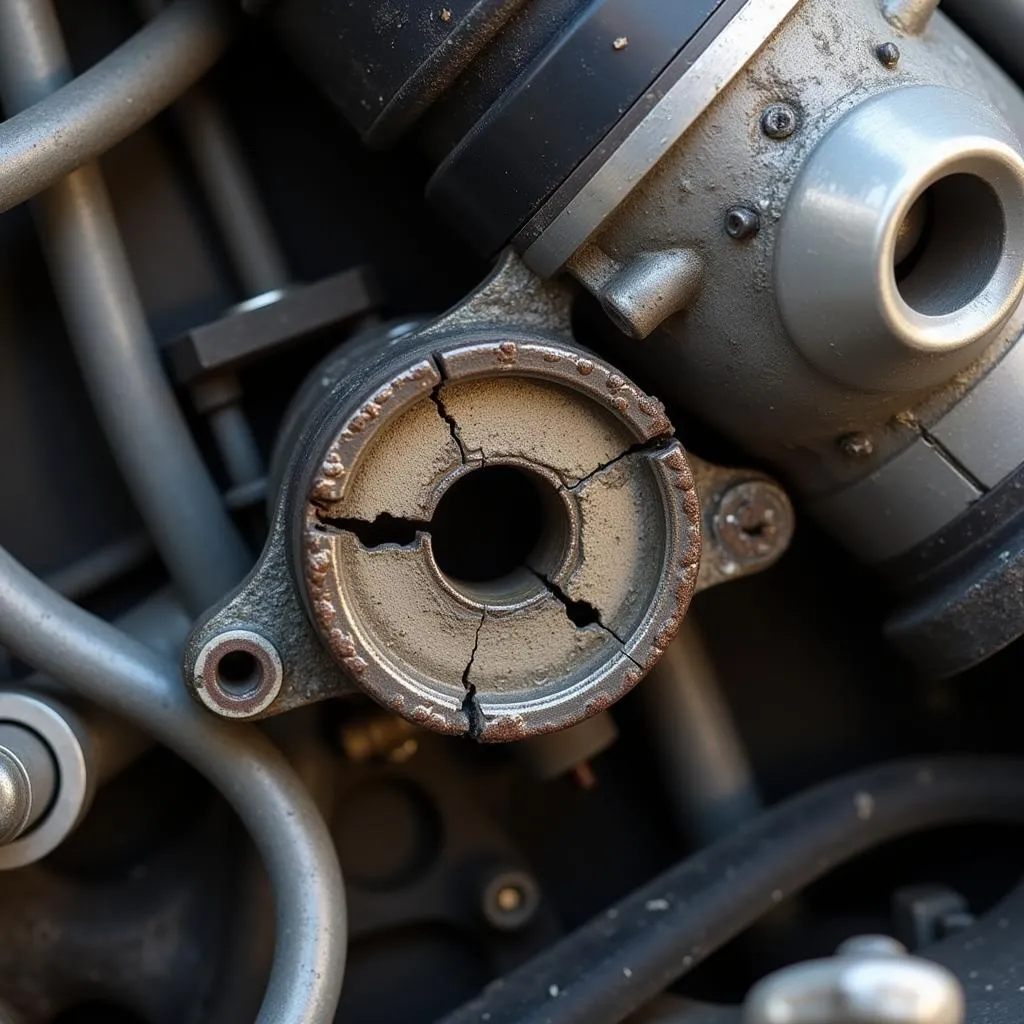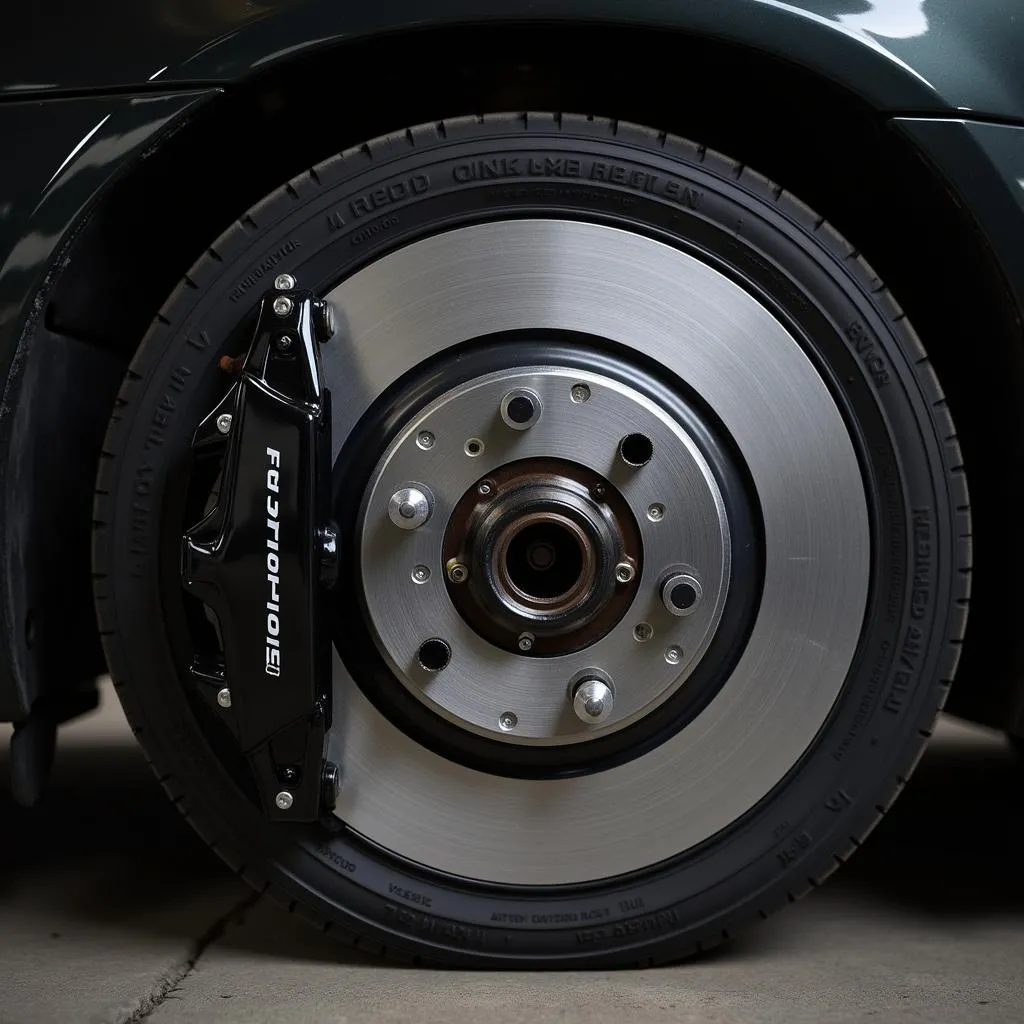If you feel your car shaking at low speeds but not high, you’re not alone. This is a common problem that can be caused by a variety of factors. While it might seem like a minor annoyance at first, it’s crucial to address it sooner rather than later. Ignoring it could lead to more serious and costly repairs down the road.
This article will delve into the common reasons why your car might be shaking at low speeds but not at higher speeds, and provide potential solutions to get you back on the road smoothly.
Common Culprits Behind the Shakes
Several components in your vehicle could be the source of those vibrations you feel at low speeds. Here are some of the most common culprits:
1. Tire Issues: The Usual Suspects
Your tires are the first point of contact between your car and the road, so it’s no surprise that they’re often the main cause of vibrations.
- Unbalanced tires: When your tires aren’t balanced properly, they can cause vibrations that are most noticeable at lower speeds. This is because the centrifugal force generated at higher speeds helps to mask the imbalance.
- Misaligned wheels: Improper wheel alignment can also lead to shaking, especially at low speeds. This happens when your wheels aren’t pointing in the same direction, causing your tires to fight each other as you drive.
- Damaged tires: A bulge, bubble, or flat spot on your tire can also be the culprit. These imperfections disrupt the tire’s shape and can lead to vibrations that worsen over time.
 Common Tire Problems
Common Tire Problems
2. Worn-Out Engine Mounts
Engine mounts are responsible for securing your engine to the car’s frame and absorbing vibrations. Over time, these mounts can wear out, causing excessive engine movement and vibrations, particularly noticeable at low speeds when the engine is under more strain.
 Worn-Out Engine Mount
Worn-Out Engine Mount
3. Brake System Problems
While less common, issues with your braking system can also cause shaking, especially if you feel it primarily when slowing down.
- Warped brake rotors: If your brake rotors are warped, which can happen due to excessive heat or wear and tear, you might feel a pulsating sensation in the brake pedal and steering wheel when braking at low speeds.
- Sticking brake caliper: A sticking brake caliper can also be the root cause, as it constantly applies pressure to the brake pads, even when you’re not braking.
 Brake Rotor and Caliper
Brake Rotor and Caliper
Diagnosing the Problem: From Shakes to Solutions
Determining the exact cause of your car shaking at low speeds requires a bit of investigation. Here’s a systematic approach:
- Check your tires: Inspect your tires for any visible signs of damage, uneven wear, or bulges.
- Inspect the engine mounts: Look for cracks or tears in the rubber of the engine mounts. Push down on the engine gently and observe if there’s excessive movement.
- Pay attention to braking: Notice if the shaking intensifies when you apply the brakes or when you reach a certain speed.
- Listen closely: Try to pinpoint the source of the vibration – does it seem to be coming from the front, rear, steering wheel, or brake pedal?
Once you’ve gathered some clues, it’s best to consult with a trusted mechanic or take your car to a professional auto repair shop for a thorough inspection. They can accurately diagnose the issue using a dealer scanner and recommend the appropriate repairs.
Don’t Let the Shakes Take Over
Experiencing shaking in your car, especially at low speeds, can be unnerving. Remember that addressing the problem early on is not only crucial for a smooth and safe ride but can also save you from potentially larger repair bills down the line. Regular vehicle maintenance, including tire rotations, wheel alignments, and inspections of engine mounts and brake components, can go a long way in preventing such issues.
Expert Insight: “Many car owners underestimate the importance of regular maintenance,” says John Smith, a seasoned mechanic with over 20 years of experience. “A simple tire rotation or wheel alignment can prevent many common causes of car vibrations.”
FAQs: Your Questions Answered
Q: Can a bad CV joint cause my car to shake at low speeds?
A: Yes, a worn-out CV joint can cause vibrations, usually accompanied by a clicking or popping sound, particularly when accelerating or turning.
Q: Why does my car shake when idling but stops when I accelerate?
A: This could be due to a vacuum leak, a faulty spark plug, or a problem with the idle air control valve.
Q: Can a bad wheel bearing cause my car to shake at low speeds?
A: Yes, a worn wheel bearing can cause vibrations that worsen as you accelerate and may be accompanied by a humming or growling noise.
Need more help? Check out these related articles:
- Truck Vibration at Highway Speeds
- My Car Shakes When I Stop
- Steering Wheel Vibrates at Higher Speeds
Don’t let car troubles put a damper on your journeys. If your car shakes at low speeds but not high, take action today! Contact us via WhatsApp: +1(641)206-8880, Email: [email protected] or visit our workshop at 276 Reock St, City of Orange, NJ 07050, United States. Our team of expert technicians is available 24/7 to provide you with reliable and efficient car care solutions.